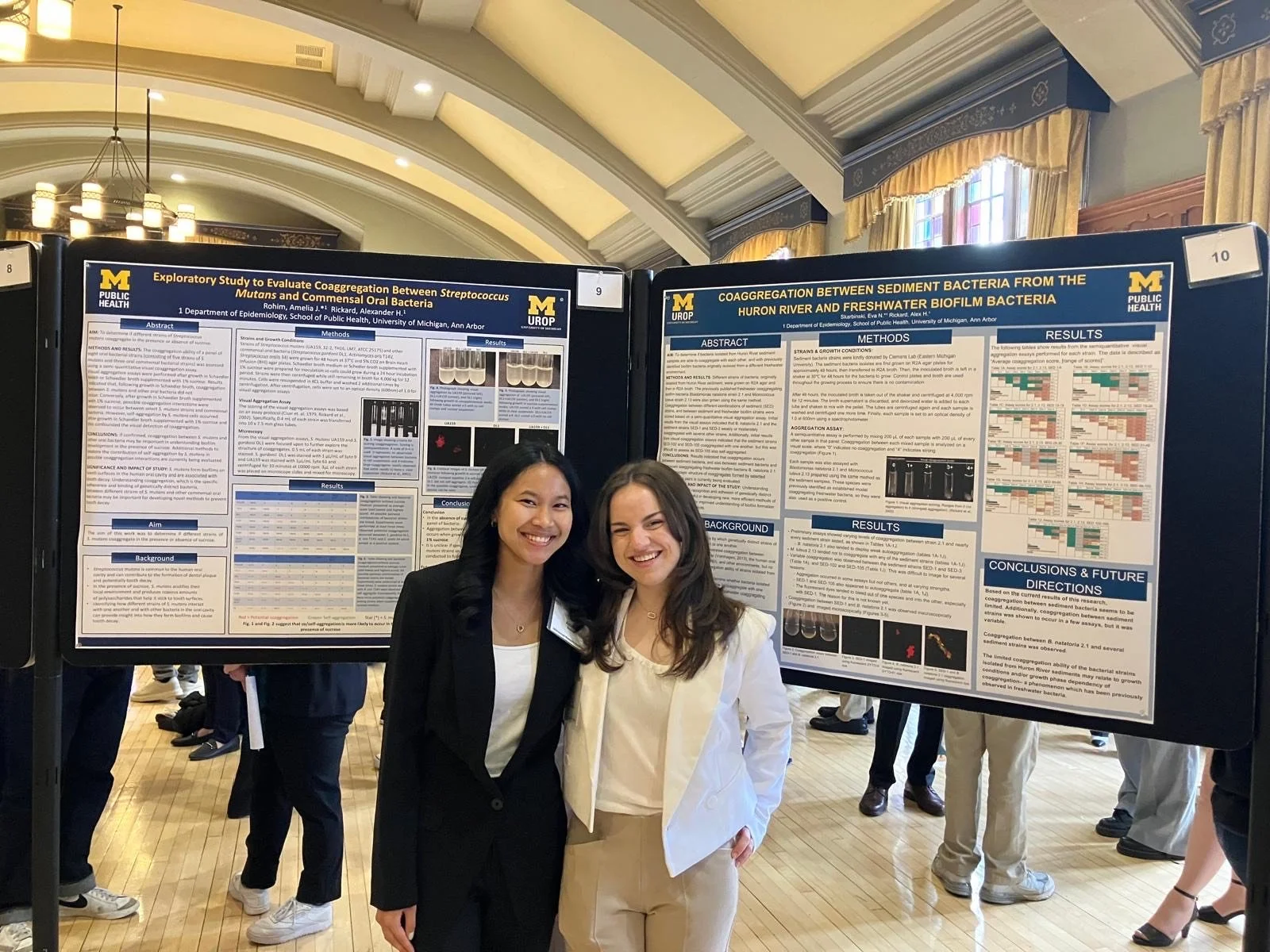Biofilms in Health, Disease, and the Environment
The focus of the Rickard research group is to elucidate the underlying mechanisms that promote multi-species biofilm development and how these mechanisms enable biofilms to benefit health or cause disease.
Biofilm image produced by the Rickard Lab
Research
Research projects in the Rickard lab are centered around the manipulation of biofilms particularly through understanding fundamental processes. We study dental, freshwater, and clinically relevant biofilms, amongst others. Focus areas and techniques covered by our projects include:
Advanced imaging with confocal laser scanning and epifluorescence microscopy
Multi-species growth patterns and behaviors under both aerobic and anaerobic conditions
Development of innovative in vitro models to answer fundamental and applied biofilm-related questions
Creation and utilization of mathematical approaches to image analysis and growth tracking
The Rickard lab actively engages intra/inter-campus collaborations with groups of various areas of expertise. We also encourage and foster a learning environment for new researchers, and proudly undertake many undergraduate students.
Teaching
In addition to the research space, Dr. Rickard also manages and instructs teaching courses through the Department of Epidemiology at the University of Michigan School of Public Health. These courses are open to undergraduate and graduate SPH students and are designed to study microbial diversity. Emphasis is placed on communities associated with the human microbiome and select environments.
Highlights
We love to spotlight the achievements of our team! Our blog features posters, presentations, recent publications, and other exciting highlights our lab members are involved in.
Philosophy Statement
The Rickard lab strives to create an inclusive and inspiring space for young researchers committed to scientifically sound research. With a team built of individuals from many walks of life, we actively work to advance the professional aspirations of the lab members. We understand that quality research requires a team effort, and we are dedicated to not only professional development, but also enhancing scientific inquiry in the lab and in the shared office space (typically with a cup of coffee during formal group meetings and casual conversations). We acknowledge mistakes happen and science is a difficult field, but we believe that through dedication and support we become stronger scientists.



